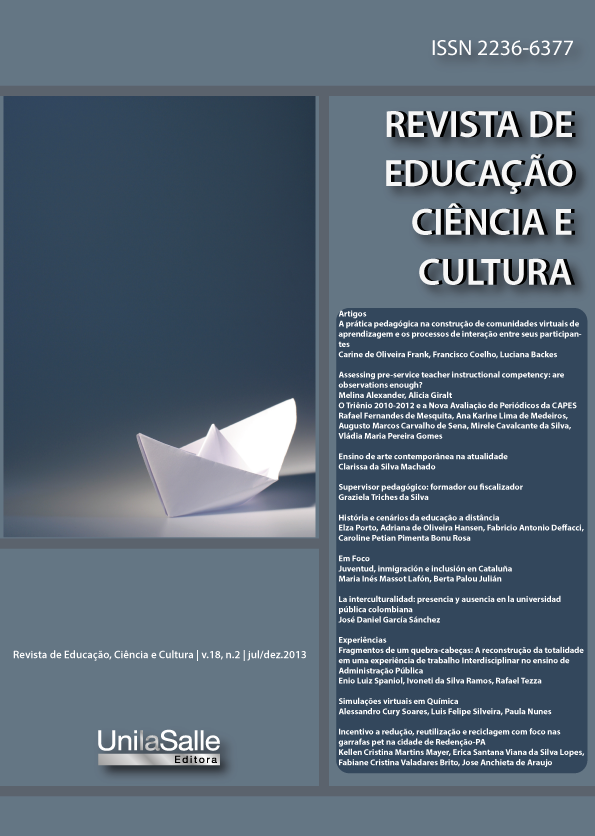Assessing pre-service teacher instructional competency: are observations enough?
DOI:
https://doi.org/10.18316/1357Palabras clave:
teacher preparation, observation tools, student teachersResumen
Teacher quality can positively impact student achievement (Goe, 2007). The responsibility for producing quality teachers, those that contribute to positive student outcomes, generally falls to teacher preparation programs. Teacher preparation programs seek to affect teacher quality through providing coursework in validated instructional methods designed to maximize student achievement and through fieldwork experiences. Pre-service teacher instructional ability is typically shaped throughout a teacher preparation program and refined in a capstone field experience called student teaching (NCTQ, 2011). Student teaching provides pre-service teachers with the opportunity to apply their content and pedagogical knowledge and skills in a real world setting. Pre-service teachers are often subjected to observations throughout their student teaching experience from a variety of sources including classroom teachers and teacher preparation program supervisors. In order for pre-service teachers to obtain maximum benefit from student teaching they need to be given quality feedback on their instructional performance garnered from these classroom observations. However, this feedback is often dependent on the type of observation measurement tool used. If the observation tool provides too little or inaccurate information, the feedback to the student teacher may be ineffective (Hill, Charalambous, Kraft, 2012). The purpose of this study was to assess currently used observation tools in one teacher preparation program against these aspects, and second, to identify needed improvements in observational procedures.Descargas
Publicado
2014-03-07
Número
Sección
Artigos
Licencia
Autores que submetem seus manuscritos para serem publicados nesta revista concordam com os seguintes termos:
Autores mantém os direitos autorais e concedem à revista o direito de primeira publicação, com o trabalho simultaneamente licenciado sob a Licença Creative Commons Attribution que permite o compartilhamento do trabalho com reconhecimento da autoria e publicação inicial nesta revista.
- Em virtude dos artigos aparecerem nesta revista de acesso público, os artigos são de uso gratuito, com atribuições próprias, em aplicações educacionais e não-comerciais.
O Periódico Revista de Educação, Ciência e Cultura em http://www.revistas.unilasalle.edu.br/index.php/Educacao foi licenciada com uma Licença Creative Commons - Atribuição - Uso Não Comercial 3.0 Não Adaptada.


